

Legal Case Study Interviews
Many commercial law firms require candidates to undertake a case study at the final interview stage.
There is not one single format, so it is advisable to ask the recruitment team what you can expect. Below are some general points and tips which have been put together from feedback from students who have gone through the process and what we have learned from law firms.
Legal Case Study and Commercial Awareness Exercises
Bear in mind that recruiters are always trying to improve their processes so it is likely that they will find new ways to assess candidates each year. It is therefore unlikely that you will find comprehensive resources to practise legal case studies in the same type of ways that you might for management consultancy case studies (in the consulting industry, case studies are extremely well established and follow a broadly similar format during the interview).
Generally speaking legal case studies are not intended to test out technical legal skills – this is partly because they need to be fair to both law and non law students. Instead they are more likely to test the skills required to be an effective lawyer within the world of (private practice) work. So focus your efforts on your specific law firm research, ways to demonstrate your motivation, and the practice of skills they are seeking rather than on preparing for specific types of exercises.
What Is Being Tested?
The following skills and attributes are likely to be tested throughout the interview process:
- commercial awareness – for example, are you thinking about the client and the issues they may be facing? Are you thinking of the law firm as a business?
- logical thinking - are you able to think in a structured way and use your common sense to arrive at a practical solution?
- analytical skills - can you identify the key issues from a lot of information, perhaps under time pressure?
- judgement - can you summarise the main points of the arguments and come to a conclusion given a certain set of facts?
- time management - can you manage your time effectively? Can you prioritise information and activity? Will you get flustered if presented with a large volume of unfamiliar information to read?
- dealing with pressure - can you work under time pressure and stay focused and effective? Can you deal with unfamiliar facts or people and stay calm?
- resilience - how do you respond to being challenged? How do you respond when something does not go your way or in the face of a difficult problem? Can you defend your point of view?
- interpersonal skills. Are you confident in what you are saying, are you collaborative, can you develop a good rapport and productive working relationships, do you listen well, are you open to feedback, do you have a positive attitude?
- communication. Can you communicate equally effectively on paper (e.g. in writing a letter/email to a client) and face to face ( e.g. in making a presentation to a group)? Are you clear? Do you think about the tone and the reader/ audience? Do you have a high standard of general literacy? Is your answer well structured, communicated in plain English and to the point?
- negotiation skills - are you clear about what you are trying to achieve and what, if anything you are prepared to negotiate on? If you are acting on behalf of someone, are they clear about what you are doing?
- motivation – are you enjoying this even if you feel slightly nervous?
Types of Exercise and Tips for Managing Them
These exercises vary from firm to firm and can be part of an individual interview or a group exercise. The material could be given to you in any of the following formats:
- a paragraph which may be about a current affairs issue or something specifically legal: read and then discuss
- an article from, for example, the Financial Times : read and discuss/answer questions
- a one or two page client scenario with a question posed at the end. For example, 'should this new client be taken on?'
- Summary of the situation – could be in the form of an email or letter
- Client or competitor strategy
- Financial statements
- Information about employees/equipment/other assets (property)
- Contracts, leases, licences
- Litigation, possible actions, non disclosure
- Regulatory information
Tips for the paragraph and article exercises
- Read carefully
- Think about how you would summarise what the article is about in two or three sentences
- Think about the argument/point of view that is being voiced throughout the article. What would be the counter argument if you had to make it?
- Identify two or three key issues – think about political and economic aspects
- There may not be an obvious connection to the law firm. The interviewer may be wanting to stretch you intellectually and see how you think, and find out whether you have an opinion that you are able to defend
- If the article has been reproduced by the firm and is set out in numbered paragraphs, this is so that you can refer to the paragraphs by number in the discussion.
Tips for the client scenarios
Possible scenarios may include a client (or a potential client) who is considering merging or acquiring another company, or a client who is being acquired by a competitor or who is looking for some legal services. The amount of material and time you are given will determine the level of detail you are expected to cover. In general it is advisable to cover as many aspects as you can broadly, rather than cover only one or two in great detail.
You may be asked a general question such as ‘what advice would you give to the client?’ or three or four specific questions. For the latter it is most important to address all the questions rather than focusing on the detail of one and ignoring others.
It is also very useful to have researched the firm carefully. By doing do you will know facts such as where the firm has offices located (useful when there are several jurisdictions involved in the scenario) and which practice areas it has (allowing you to suggest bringing in expertise from elsewhere in the firm if appropriate).
Tips for “bundle of document” exercises
Some firms will give you anything between 5 and 20 documents to read and answer one or more questions. You may be asked to give a short presentation followed by a discussion with the interviewer(s).
- Read the question(s) carefully and follow instructions
- Flick through quickly to establish the contents and make sure you look at the back page. You may even find an index to help you
- Take a minute to plan your time and leave enough to produce a presentation or at least review your thoughts before the interview
- Use a highlighter
- Identify key elements relevant to the question(s)
- Don’t forget to consider whether the deal should even be done. Is there a deal breaker? Is there another option?
- Consider risks to the client and/or to the firm. For example are there any reputational issues associated for either party? Is there any “conflict of interest” for the firm?
- Structure the presentation: beginning, middle and end which should be short summary with recommendations. Be close to the maximum time allowed
- Be confident in your recommendations, even if you feel that your chosen line of argument is marginal. You can assess the pros and cons of a given situation, but conclude with “on balance, I recommend xyz”. Remember that solicitors are paid to make decisions and that clients need to trust their legal advisers to make them!
- Consider your audience
- Imagine this was actually a real situation at work where you were involved in working with this client – what would you really say to them?
- Check your grammar, spelling and punctuation.
Preparation
Here are some suggestions to help make you feel ready and confident to tackle these exercises:
- Make sure that you research the role of a solicitor carefully such that you have a realistic view of their daily work (in the relevant setting), their responsilbilites and activities and even an awareness of the SRA's Code of Conduct for legal service firms and individuals.
- Have a clear idea of the firm’s practice areas, what type of work they specialise in, where their offices are located, how they differentiate themselves from their key competitors and the challenges that law firms face.
- Read the firm’s annual report or review (and compare it to a competitor), follow their news on Twitter in the weeks ahead of the interview.
- Be aware of what is happening in the legal world.
- Keep up to date with current affairs including areas of business that interest you.
- Learn some basic business language, have a broad understanding of mergers and acquisitions and how they are structured. Know how to read a balance sheet.
- Be clear on the importance of technology for all businesses.
- Practise reading business articles in a set time and then summarise the key points.
- You may find it useful to become familiar with some basic analysis tools used in business such as SWOT and PESTLE as they may help you think of areas to consider in some responses. Don't go overboard with these though as they might hinder your ability to write a clear and appropriate response if they are used incorrectly.
- Complete some of the exercises that firms offer in their online work experience/online internship schemes. Many are listed on Forage.
Resources for Building Commercial Awareness
Good resources for City and global firms are:
All You Need To Know About The City by Chris Stoakes, and Commercial Law Handbook by Jake Schogger are useful preparation for understanding business terms, how deals work and general commercial awareness as it applies to the legal industry.
Useful websites include:
- My experience on case study interview: How should you prepare for a case-study interview? - a Legal Case Study on LawCareers.Net
- Chambers Student: Commercial Awareness Resources - Legal Blogs
- Chambers Student: Legal industry trends
- LawCareers.Net commercial awareness weekly round ups
- UK Government guidance on how to set up a business
- BBC News: Business
- How to Read a Balance Sheet (The Non-Boring Version)
- Linklaters “Commercial Awareness” advice
- Virtual work experience programmes for several law firms including Linklaters, White & Case and Pinsent Masons are available on the Forage platform.
- Warwick Place: news articles about challenges faced by law firms
- legalfutures.co.uk – has a free newsletter rounding up key changes and news in the legal sector.
- Our self directed learning information pages contain resources for free online courses
- Investopedia has a good dictionary for business terms.
Building Your Commercial Awareness Skills at Oxford
- Attend skills sessions run by law firms online as well as those run by The Careers Service , the Oxford Law Society , the Oxford Bar Society and the Law Faculty
- The Oxford Strategy Challenge – ideal for building up team work, commercial awareness and skills in working with business clients. Run regularly throughout the year (online).
- Insight into Strategy and Management – a short course, run each term, to improve your business knowledge.
- Develop your employability skills – includes many ideas for building these at Oxford including practical suggestions for developing your “business awareness”.
- Presentation and other assessment centre skills advice
- CareerConnect VACANCIES
- CareerConnect EVENTS
- RELATED NEWS
Looking for more?
Check the CareerConnect platform for all our upcoming events and opportunities, book appointments, find jobs and internships, and more.
Login to CareerConnect
Recommended links
Oxford Guide to Careers 202 4
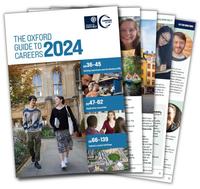
Cover Letters
Sectors & Occupations
See a Careers Adviser
Connect with us
- Follow us on LinkedIn
- Follow us on 𝕏 X (Twitter)
- Follow us on Instagram
- Follow us on YouTube
- Follow us on Facebook
Get a free copy of NCL's Law Firm Insiders' Guide
How to succeed in scenario-based interviews at law firms.
Who are Next CIty Lawyer?
We are a team of qualified lawyers from US, Magic Circle and Silver Circle law firms law firms. We publish articles like this one every fortnight to give you the inside scoop on how to secure your training contract.
With years of experience analysing and reviewing documents for some of the world's most sophisticated clients, we've channeled the same level of care and attention into curating our database of successful applications to world's best commercial law firms.
Introduction
Many candidates do not prepare for “scenario-based” interviews. Some think that the interview only comes up at a minority of firms. Others think that it “cannot be prepared for”. Nevertheless, this interview is more common than you might think and can be a stumbling block for even the most intelligent candidates. This blog article aims to show you how you can prepare for scenario-based interviews, and how you can use them to differentiate yourself from other candidates.
This article will cover:
- What scenario-based interviews are and what they aim to test
- How you can prepare in advance for a scenario-based interview
- Key tips and tricks to use during your interview to outperform other candidates
What Are Law Firms' Scenario-Based Interviews?
Do not confuse a “scenario-based” interview with a traditional case study/presentation exercise. This is a wholly distinct kind of assessment. A scenario-based interview can take two forms:
- Real world example - You have a 30-60 minute interview with a partner who begins by introducing to you a real deal that they have done. They will talk through this deal and some of the problems the firm or their client faced. They will also ask you questions along the way.
- Fictional scenario - You have a 30-60 minute interview with a partner and/or an associate who begins by introducing to you a fictional deal or scenario relating to a (fictional) company. They may talk through some basic details of the scenario before addressing you directly. They may ask some questions, listen to your answers, and then give you more information about the scenario and ask follow-up questions.
The real-world scenario
Though the difference between the two may seem superficial, it impacts how the interview will progress. In the first scenario, you are discussing a real deal. Naturally, you can expect your interviewer to be an expert on the facts and proud of their work on the matter. Your discussion is likely to focus on the practical implications of the facts provided.
For example, the partner may stop to ask you, “so, what do you think was going through our [the team at the firm’s] heads at that moment?”. They may also present you with a choice and ask you “which one do you think we picked?”. Although only one answer is the correct one, they will also be looking for your reasons and justifications for your choice. As this is a real deal, your answers are expected to be pragmatic and carefully consider the commercial context of the advice provided to the client.
The fictional scenario
In the second scenario, the content provided by the law firm is fictional. Although you should be aware of the real-world practicalities that might surround this kind of scenario, the focus of the interview will be more on your technical knowledge.
For example, your interviewing law firm may tell you that some investors have come together to purchase a coffee business that turns raw coffee beans into nice, branded bags of ground coffee that are sold in supermarkets. You may then be asked, as an introductory question, “imagine these investors come to us – what legal departments do you think would potentially be engaged in this transaction?”.
There’s many potential roles for a full-service law firm in a typical deal; it could involve general corporate, finance, employment, intellectual property, etc. It is unlikely that the law firm wants an exhaustive list, but they are testing your knowledge of the firm and of your understanding of what the main departments in a firm do and why.

While your interviewer will have read the facts for the fictional scenario in advance, they are unlikely to know its content as well as a deal which they worked on themselves for several weeks or months.
Some law firms like to use fictional scenarios because they consider it more fair to put every candidate through the same example. In theory, this allows them to objectively compare performance across candidates. However, there is a risk that candidates share information about the assessment online after their interview, which is the main reason why other law firms prefer to use a variety of real world examples.
Similarities and differences
From these overviews, you can observe that in the first kind of interview, the focus is more on practical legal knowledge and the ability to think realistically in a business context. For the second kind of interview, the focus is more on your technical knowledge regarding what commercial solicitors do, some academic understanding of the law, and your commercial awareness.
However, you should not assume that the kinds of interviews share nothing in common. Above, we have described the general pattern. Nevertheless, the best candidates will prepare for both kinds of interviews. This is because the interviewer could ask more technical interview questions in the first kind of scenario-based interview or a practical question in the second kind.
Scenario-based interviews are flexible and this is a chance for the interview to figure out your strengths and weaknesses. Your interviewer could go off the beaten track and challenge you - be prepared!
So what does this look like practice? Imagine you are having the first kind of interview: a scenario that actually happened has been presented to you by a partner who is also your interviewer. The partner has just asked you, “so, what do you think we asked the counterparty for?”. You have just replied with an answer that could be summarised as some particular “warranties and indemnities” (you will have to be specific, of course!). The partner smiles and replies, “Good! And could you summarise what their differences are?”.
You should see that whilst the beginning of the conversation revolved around the practicalities of the transaction and what the firm did, the second half of the conversation investigates your more technical understanding of law and business.
How Do I Prepare for Law Firm Scenario-Based Interviews?
This may all seem rather intimidating. How could you prepare for an interview in which you have no idea what scenario is going to be brought up? Does it not all depend on the interviewer I get?
Yes, the scenario will depend on your interviewing partner. Some people may get a disputes partner and be expected to talk about a deal gone wrong. Others may get a banking partner could discuss the financing of a particular project. And if you have a fictional scenario then any topic could be raised. Although this adds some volatility to the process, this does not mean that you cannot prepare for these interviews!
Develop your commercial awareness
First, you should be sure to brush up on your commercial awareness and technical legal and commercial knowledge. Irrespective of whether your scenario is real or fictional, you will need to have a strong understanding of what commercial lawyers do, what the main departments of a firm do in a transaction or a dispute, and the appropriate legal and commercial fundamentals. You should have a look at our case study/presentation assessments blog article for information about how to build this knowledge (contained in the latter half).
If you are a law or a non-law student, your interviewer will expect you to have this knowledge. Typical undergraduate law degrees do not cover the main knowledge you need to showcase in these interviews. Yes, some knowledge of company law may be useful; however, you need to refocus your efforts on understanding things like warranties, indemnities, sale and purchase agreements, exclusivity agreements, and so on.
In addition to the blog article linked above, studying the Anatomy of a Deal video will give you a good idea of the areas you need to be researching and build additional knowledge about. This video is designed to point you in particular directions, it will be up to you to do the requisite studying!

Ask the “so what” question
Second, you should practice asking “why?”. This may sound strange but many candidates fail to demonstrate their critical thinking ability in an interview. Having commercial and/or legal knowledge is not enough. You need to show the interviewer that you can put this knowledge into practice.
The best way to learn how to do this (other than being a paralegal or a lawyer already) is to read up on some deals and disputes. However, you should not read them passively. You should read these deals with the aim of asking “why?” at every turn.
A press report by a law firm might say that they helped their client raise £500,000 in debt to facilitate the purchase of a target company. Ask yourself, “why? Why did they choose to raise the money via debt and not via equity?”. You may already know the pros and cons of debt and equity finance in abstraction, but now consider them in practice. What was it about the scenario that accentuated some of the advantages of debt finance or the disadvantages of equity finance?
If you feel flummoxed by some of these notions, you can download our bespoke mock case study where our walkthrough explains these fundamentals and applies them in a fictional context.
It is worth bearing in mind that you should expect your interviewer to push you. Even if you have done lots of research and brushed up on your answers, you should expect to face more challenging interview questions. This may seem self-defeating: is it really the case that the more you know, the harder your interview questions will be? Technically, yes. But this is a good thing. If you can demonstrate that you are worthy of the "harder" interview questions, you're almost certainly doing well.
All the interviewer wants to see at that point is how you think and how you can reason your way to some kind of appropriate solution. So, don't skimp out on your preparation in the hope that the law firm will give you easier interview questions - ask yourself "so what?" and push yourself before the interview!
Practice interview questions
Third, you should practice with a trusted friend or family member. If you would prefer (or do not have a partner who will work with you), you can do this by yourself! Ask them (or do it yourself) to invent a potential deal or have a look in the news for some rumoured transactions or disputes. Talk them through the transaction or dispute highlighting where the lawyers would have to be careful and where they may receive push-back.
Try to encourage your partner to ask difficult questions or to imagine challenging scenarios to which you need to posit potential solutions. This process will encourage you to get inside the head of an interviewer and see where your own weaknesses lie.
Tips and Tricks to Employ During the Interview
Take a moment.
This interview is as much about what you say as it is about your attitude. As we mentioned, scenario-based interviews are very flexible and are designed to examine how you process large volumes of information with very little time to sit and reflect.
Having said that, our first tip is to take a moment before answering your interview questions. You are likely to find the whole process overwhelming. Do not let the tone or speed of your interviewer push you into blurting out a lacklustre answer or inappropriate solution. You should also not let the environment of being in a law firm intimidate you. Focus your attention on the interview questions and try to avoid having your mind wander off. When you are asked something, you should take a moment to think before carefully stating your response.
Ask (some) questions
On a related note, our second tip is to ask appropriate follow-up or clarification questions. Law firms will not expect you to know absolutely everything, especially if you are discussing a real-world scenario. Therefore, you can always ask some questions during the interview if you are unsure about something or would like some additional information about a particular point.
Importantly, however, you should not interrupt the interviewer. Instead, you should ask these questions at the appropriate juncture. Do not backpedal too far and ensure that the question is relevant (do not ask questions just to show off!).
Use an organisation chart
Another trick is to draw an organisation chart. If a complex scenario is being described, it may be hard for you to keep track of all the parties and relationships in your head. Use a pen and paper (which law firms often provide to their interviewees) to note down an organisation chart that keeps track of the parties’ names, roles, and relations to each other.
If you are unsure what an organisation chart looks like take a look at HSBC’s simplified structure chart (do not worry, your one is unlikely to be that complicated!).

Don't forget your body language
Finally, your body language is key. If your interviewer is particularly passionate about the scenario, they may talk at length without asking you many questions. You must remain attentive and be absorbing all the information articulated. However, you should also be communicating your attentiveness and enthusiasm through your body language.
When you are unable to speak, your posture and facial expression must do the talking! Sit up straight, follow along with what they are saying, nod and smile. You may occasionally make an “mmm” sound in agreement or disagreement; however, do so sparingly as it can be annoying. Make eye contact with the interviewer but you should break such context when making notes or if the interview turns into a bizarre, uncomfortable staring contest. Law firms want human beings, not calculated robots!

Good, communicative body language is a subset of 'interpersonal skills' and is itself a hard skill to master. If you are determined to improve your body language, look at this Graduates First video, which also gives tips on practising good body language. You should never forget that a mirror or webcam is your best friend – you can practice your gestures in the reflection and see how you come across!
The article has covered how to succeed in a scenario-based interview. We have looked at what a scenario-based interview entails, how to prepare for one, and some of our top tips and tricks to use during the interview.
Our summary
To summarise our advice:
- A scenario-based interview can either be about a real transaction or dispute that a partner has done, or a hypothetical, fictional scenario.
- These scenarios are unseen. You will be introduced to them in the interview itself. Your ability to think quickly on your feet is crucial here.
- A real-world scenario will focus more on the practicalities of the transaction or dispute whilst the fictional scenario is likely to be designed to test more of your technical knowledge. This is just the general pattern – anything can come up in your scenario interviews so be prepared with both your critical thinking skills and practical mindset, and your technical knowledge.
- You should prepare for these scenarios and follow-up interview questions by revising your technical knowledge and strengthening your commercial awareness.
- You can also prepare by reading about deals in the press and asking yourself “why?” to probe yourself on certain legal or commercial areas and to practice your critical thinking skills when presented with more challenging interview questions.
- Finally, you can do mock scenario-based interviews with a trusted family member or a friend.
- Our first tip is to take a moment to think before answering in your interview.
- Our second tip is to ask follow-up or clarificatory questions where appropriate. These will help you answer the interviewer’s questions to the best of your ability and demonstrate your interest in the subject matter.
- A trick to digest information about a complex dispute or transaction is to draw an organisation chart to keep track of parties’ names, roles, and the relationships between them.
- Our final trick is to use your body language to communicate your attentiveness and enthusiasm in the moments where you are not able to talk.
So, what next?
If you are ready to move from research to action, you should look at our application database BEFORE you put pen to paper on your applications. You wouldn't walk into an exam hall without carefully reviewing past papers. It's exactly the same with applications to law firms. If you fail to prepare, you prepare to fail.
Most candidates read a few well-intentioned but obvious articles on how to apply to law firms. Most candidates then spend a couple of hours writing an application before optimistically submitting it. But most candidates don't even get an interview. Every year, thousands of candidates are part of the 90% that are rejected at first round.
Join us as part of the successful 10% instead. Let us give you an unfair advantage: through our comprehensive analysis of successful applications to every major law firm, our qualified lawyers will break down the ingredients of a phenomenal application. We will help you beat the odds, secure your interview and then avoid final-round failure at your assessment centre.
Related posts

Stop Undervaluing Yourself!
.jpeg)
How Many Training Contract Applications Should You Do?

How to Explain Mitigating Circumstances in Law Firm Applications
Sign up to our email list. Get a free copy of our 15+ page guide explaining how to choose the best law firm for you.
.webp)
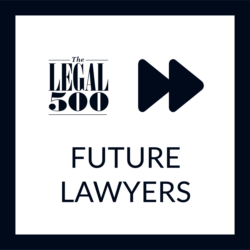
10 top tips on how to prepare for a law firm interview
- Survey Results
- Firm Profiles
- Firm Comparison Table
- How our survey works
- Career Clinic
- Bar Profiles
The interview: arguably the most daunting part of the whole application process and the one that will make or break your journey with that particular law firm. But with plenty of preparation you can go into your interview feeling confident and knowing that you’re about to give your best performance.
1) Know the firm
Perhaps the most fatal mistake made by under-prepared interviewees is not being able to distinguish a firm from its competitors. The high likelihood of a question along the lines of “Why this firm?” being asked gives applicants the perfect opportunity to impress the interviewer with their knowledge and understanding of the firm’s strategy, identity and strengths.
2) Know yourself
An interviewer cannot be expected to believe your reasons for wanting to be a commercial solicitor if you are not sure of them yourself. Employers look for commitment, and confidently explaining the reasons behind your career choice is the best way to demonstrate it. On a more personal level, be familiar with your personality and understand which aspects of it – and your life in general – make you interesting, and allow them to shine through at the interview.
3) Know your application
There is one element of the interview for which you can be perfectly prepared: questions based on your application form. Go over it beforehand and ensure that your preparation for the interview reflects the themes and answers you have included. Taking a copy of your application to the interview can be a useful strategy, but only if you are already familiar with the content.
4) Prepare for competency questions
Questions may focus on a specific set of facts, and having a large bank of examples tailored to the competencies most relevant to the legal world will allow you to give strong answers. Think about what the interviewer is looking for with each question and check that your examples demonstrate key skills. Try to stress positives in those examples which initially appear negative – for example, what you learnt from a time when you did not succeed.
5) Commercial awareness
This is a less elusive concept that it may seem. Staying up to date with current affairs and having knowledge of the legal market is essential. Being comfortable discussing economic policy, finance and related areas may be required for some firms – it is best to ask around. If faced with a challenging case study, remember to think commercially before legally and answer using common sense and general principles of business.
6) Keep note of what you do during your time at the firm
If you are to participate in an exit interview at the end of a vacation scheme you may be asked to describe which aspects of the scheme and which tasks you found most enjoyable, which tasks you found difficult, and how you responded to any challenges that you faced.
7) Take your time and be clear in your answers
Use your interview to show your clarity of mind and strong communication skills. Instead of rushing to answer questions take a brief moment to gather and organise your thoughts. When faced with a tough question it is better to explain to your interviewer that you need to take slightly longer to think, or admit that you do not know the answer, than panicking and giving a rushed or rambling answer.
8) Don’t be a clone
Your interviewer is looking for someone who will contribute positively to the office dynamic and who can, in the future, be put in front of clients. In addition to showing evidence of interests outside of law, being confident, personable, and maintaining eye contact will help to distinguish you from other applicants with equally strong CVs. If you have properly prepared for an interview you should have nothing to worry about.
9) Asking questions isn’t compulsory
Intelligent questions will be well received but if your interview is at the end of a vacation scheme it is understandable if you have none left to ask. It is best to avoid asking any questions to which the answers can be found on the home page of the firm’s graduate website.
10) An interview is a two-way process
To judge the atmosphere of a firm solely on an interview is unadvisable, but its tone and content are often useful pieces of a larger puzzle and will help you decide whether this is the firm for you.
18 Tips to Successfully Interview at a Law Firm
Here's how lawyers can make the best case for themselves in the job interview.
Successfully Interview at a Law Firm

Getty Images
Be polite and warm to everyone, from the receptionist to the partner.
For a successful law interview, lawyers may benefit from tips on how to best make the case for themselves – why they’d be right for this firm. Particularly, since the way they approach meetings in their practice of law can backfire in an interview. A job interview isn’t a deposition, after all.
Here are 18 tips for successfully interviewing at a law firm.
The Interview Is About Them, Not You
Most candidates think interviews are about them, but “it’s about the employer. It’s not about you,” says Tony Waller, assistant dean for career development at the University of Georgia School of Law.
The real, if unsaid, questions an interviewer asks are: “Are you a good investment for the firm?” “Can we put you in front of clients?” and “Will you turn out quality work product for us?” says Waller, who currently serves as president of the National Association for Law Placement.
Sell How You Help the Firm
The best candidates explain how hiring them fulfills the firm’s needs, now and in the future, Waller says.
Waller is amazed by how often recruiters report that, when they asked a candidate where they wanted to be in five years, the candidate said they wanted to be working somewhere else.
Pass 'the Airport Test'
Law firms largely decide if an attorney is capable by their resume, so interviews are less about ability and more about determining someone’s fit within the firm culture. The firm wants to know what a candidate would be like during long workweeks, Waller says.
Thus, the interview is “the airport test.” The interviewers wonder, “Would you want to be with this person when you were stranded in the Minneapolis airport during a snowstorm?” says Lauren Rivera, the Peter G. Peterson Chair in Corporate Ethics at Northwestern University’s Kellogg School of Management.
It’s (Usually) a Conversation, Not a Deposition
Candidates who grew up in families that didn’t regularly discuss business or law often go to interviews expecting them to be formal and hierarchical, according to Rivera, who studies how people’s backgrounds impact law firm hiring.
However, most law firm interviews are unstructured conversations, so candidates do better expecting a free-wheeling dialogue.
“They take you on a journey, and go along for the ride,” Rivera says.
Do Your Homework: Research the Interviewer and the Firm
When a candidate knows about the firm, is familiar with its matters and can discuss a law review article written by the interviewer, they prove their interest in a job at this firm, Waller explains.
“That can be a game-changer,” he says.
By contrast, an unprepared candidate asks about practice areas the firm doesn’t have, Rivera says.
Practice, Practice, Practice
While it sounds paradoxical, the best way to sound natural is to practice the interview with a partner. Practice helps a candidate chat about their experience more conversationally, Rivera explains.
And everyone asks, “Tell me about yourself,” so candidates should practice their answer until they can kick off the interview in the right direction, Waller says.
Bring Paper Copies of Your Resume
Bring at least two copies of your resume, cover letter and writing samples. And bring them in a professional portfolio. (Waller keeps a stack of portfolios for law students who don’t have them.)
It’s an indicator of how prepared you are, Waller explains.
Turn Off the Phone
Ideally, turn it off and leave it outside of the interview, Rivera says.
Be Polite
Maintain eye contact with the interviewer .
“Eye contact is one of the biggest ways someone shows they are confident and establishes a sense of connection,” Rivera says.
While this may be difficult for some candidates, most interviewers interpret a lack of eye contact as a signal that someone lacks interest or confidence.
Taking Notes Is Fine
It’s acceptable to take notes, but ask the interviewer if they mind before doing so.
Use a paper notebook. If a candidate uses a phone, the interviewer may suspect the candidate is texting a friend, Waller explains.
Start Out Strong – First Impressions Count
“There’s data to suggest that interviewers decide if they are going to hire you within two minutes,” Rivera says.
“Start off with your best ability. Appear friendly, confident but not cocky,” she says. And be aware of nonverbal communication.
Make a Personal Connection
Find a connection with the interviewer. It could be about work or a shared school, but it can be more personal. Seeing sports memorabilia on the wall can lead to a discussion of a candidate’s love of baseball, Rivera says.
“It sounds really simple, but the issue is ‘Do I want to work with you?’” she explains.
Mention Extracurriculars
When candidates include extracurriculars on a resume, they get more callbacks, according to Rivera’s experiments.
Activities suggesting an affluent background – especially lacrosse – are more likely to win an interview. But other hobbies can be an asset, if the candidate is specific about why it’s of interest, Rivera says. It’s a chance to show off personality and passion. And who knows? The interviewer may love to read and do the New York Times "Spelling Bee," too.
Be Authentic and Honest
Candidates sometimes lie to impress an interviewer. That’s a mistake.
Interviewers ask follow-up questions to spot-check someone’s claims, Rivera warns.
And it’s difficult to keep straight which partner heard the candidate was a par golfer and which believes they’re a wine connoisseur.
It’s better to accurately present yourself from the get-go.
“The law is a hard job, and our most authentic selves come out under those conditions,” Waller explains.
When Prompted, Ask Thoughtful Questions
Never say, “I don’t have any questions” when the interviewer asks for them at the meeting’s end.
Instead, have questions tailored to the interviewer, asking about their practice, a matter or their experience.
With thoughtful questions, the candidate leaves an interviewer reflecting on the candidate’s engagement in the firm’s work, Waller says.
Turn a Virtual Meeting Into a Home Run
For virtual meetings, Rivera suggests these strategies:
- Have a stable connection.
- Choose a nondistracting background.
- Shut off calendars, email and anything with alerts that interrupt a conversation.
- Raise the camera to eye level and look at the lens for virtual eye contact.
- Expect the interviewer to be late, since interviewers schedule virtual meetings back-to-back. Be early, calm and ready as they get up to speed.
Take the Long View
Most candidates see interviews as transactional and “I got the job or I didn’t.”
That’s a missed opportunity, according to Waller.
With a positive exchange, even if they didn’t get the job, a candidate can consider the interviewer as a new connection within their network, Waller says. And their paths will likely cross again.
How to Find Continuing Legal Education
Ashley Merryman Nov. 1, 2023

Tags: law , law school , Interviewing , Applying
Username or email *
Password *
Forgotten password?
[email protected]
+44 (0)20 8834 4579
Law Firm Insights
Welcome to the Law Firms page! Here, you can find extra information about various law firms, as well as case studies and interviews with current solicitors and trainees.
- Deciding on Law
- How to Become a Lawyer
- Areas of Law
- Solicitor vs Barrister
- What is a Solicitor
- Becoming a Barrister
- Legal Executive
- What Is A Legal Secretary?
- How to Become a Judge
- Legal Apprenticeships
- Studying Law at University
- Law at Oxbridge
- Studying Law Abroad
- Personal Statement
- Law Research Techniques & Resources
- Commercial Awareness
- Law Work Experience
Vacation Schemes
- Law Courses
- Non-Law Students
- PGDL (Conversion)
- Bar Training Guide
Training Contracts
- Law Firm Applications
Pupillage: a Guide for Aspiring Barristers
- Magic Circle Law Firms
- What Are The Top American Law Firms In London?
- Allen & Overy: Internship Insight
- Clifford Chance: Top Tips
- Clifford Chance Interview
- Linklaters: Top Tips
- Freshfields: Top Tips
- Bird & Bird: Diversity
- Bird & Bird: Case Study
- Dentons: Apprenticeships
- Gibson Dunn: Trainee Case Study
- Herbert Smith: Trainees
- Hogan Lovells Training Contract Insights
- Penningtons: 1st Year Trainee Diary
- Penningtons: 2nd Year Trainee Diary
- Simmons & Simmons
- Networking Guide
- Diversity In Law
Baker McKenzie

Baker McKenzie is the second-largest law firm in the world by number of employees and also revenue.
You can take a look at their training contract application calendar here:
Bird & Bird
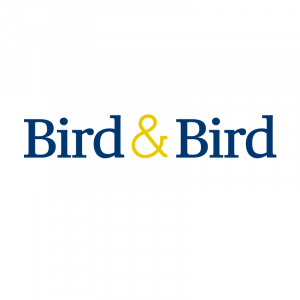
Bird & Bird are a top law firm with over 1200 legal advisors globally and specialising in business sectors with technological components.
You can read about their amazing Bursary Programme, encouraging more diversity in the legal sphere.
Alternatively, we have a case study from a participant in their Bursary and Pioneer Programmes.

Dentons is actually the world’s largest law firm by number of lawyers, working in commercial law.
They’ve recently launched an innovative apprenticeship scheme for aspiring solicitors.
Freshfields Bruckhaus Deringer

Freshfields is a multinational law firm that was founded in over 250 years ago! They are one of the 5 members of the Magic Circle.
A trainee from Freshfields gave us an overview of her training contract and what advice she’d share.
We also conducted an interview with a member of the Freshfields graduate recruitment team about training contracts.
Here, Freshfields gave their top advice for applying for training contracts.
Gibson Dunn
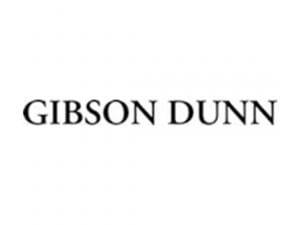
Gibson Dunn is a global law firm that’s based predominately in America, and is renowned for its litigation practise.
A trainee from Gibson Dunn, but based in London, spoke to us about his vacation scheme and his experiences working for an American law firm in the UK.
Herbert Smith Freehills
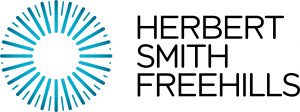
Herbert Smith Freehills is an international law firm formed from the merging of UK-based Herbert Smith with Australian-based Freehills.
We caught up with two trainees from Herbert Smith Freehills, who discussed training contracts and their lives as trainee solicitors.
We also spoke to a representative at Herbert Smith Freehills who offered us some advice about what they look for in their candidates.
Hogan Lovells

Hogan Lovells is a multinational firm with headquarters both in London and Washington D.C.
It specialises in “government regulatory, litigation and arbitration, corporate, finance, and intellectual property”.
Read the top insights from four trainees currently at Hogan Lovells with our guide Hogan Lovells: Trainee Insights !
Penningtons Manches
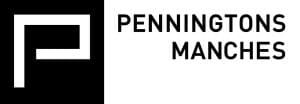
Penningtons Manches is a UK law firm who specialise in “dispute resolution, corporate and commercial, real estate, private client and family”.
Two trainee solicitors talk us through a typical day as part of their training contracts.
Read first-year-trainee Eva’s account here:
Or take a look at KC’s second-year diary here:
Simmons & Simmons
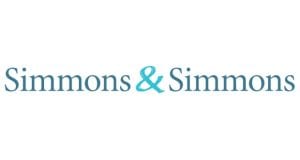
Simmons & Simmons is a global practise with 21 offices across the world.
Three trainees from Simmons & Simmons gave us brief insights into what it’s like working for such a huge law firm.
A fourth seat trainee also gave us an insight into training contract applications.
Finally, you can find two vacation scheme case studies for Simmons & Simmons.
Taylor Vinters

Taylor Vinters is an international law firm with offices in London, Cambridge and Singapore.
Their HR Manager revealed the crucial advice on obtaining a training contract.
She also shared her top tips with us.
Take a look at Taylor Vinter’s Life as a trainee at Taylor Vinters video:
Law Firm Opportunities
Law Firm Directory
Explore key stats, training opportunities and more with our detailed law firm listings.
Stay ahead of the game and keep track of upcoming training contract deadlines.
Keep track of the latest deadlines & get your foot in the door of a top law firm.
Law Firm Open Days
Don't miss an opportunity to meet law firms & register for upcoming open days.
What Are The Magic Circle Law Firms?
You may also like.
- A Court Of Appeal Judge’s Landmark ChatGPT Judgment
- ECHR's Climate Case: Can The Court Redefine The Fight For Our Planet?
- Which Countries Have The Strictest Environmental Laws?
- Commercial Awareness Round-Up: 5 Key Topics You Should Know About
Loading More Content
- Log in
- Site search
9 questions you might be asked in a law interview
Interviewing for a job in a field as prestigious and competitive as law can be nerve wracking. Preparation is key so practice and polish your answers to these common law interview questions
The type of interview you'll face when applying for a law job really depends on the firm and the role you've applied for, but candidates can often expect to face a telephone or video interview and a panel interview , which may be conducted by a combination of graduate recruitment and fee-earning colleagues.
Jack Yusuf, trainee solicitor at White & Case explains the three types of questions you'll come up against in a training contract job interview:
- Motivational questions - where the interviewer will ask you to provide your personal reasons for becoming a commercial lawyer and for applying to the particular firm in question.
- Competency questions - the interviewer will ask you to provide examples to show you have the specific attributes required of a trainee solicitor.
- Commercial awareness questions - questions on commercial topics to better understand your level of commercial awareness.
When interviewing for training contracts you might also face a case study scenario, in which you'll review several documents and then present back to the panel on risks and opportunities facing the potential client.
Just like in all job interviews, it pays to be prepared. Take a look at the following example questions and discover how to answer them.
1. Why do you want to become a solicitor?
This sounds like an easy opening, but it throws many candidates off their stride.
When answering, consider the type of firm you're interviewing for. 'Commercial law firms want to know that you have a genuine and specific interest in commercial work, not just legal work generally,' advises Jack. 'Interviewers also want to know that you truly understand what the role entails.'
Look at the firm's main website - not just their recruitment website, as it often contains useful information about the sectors that the firm is active in.
This question can be phrased in number of ways, such as:
- why choose a career in law?
- why have you applied to us?
'Be specific and personal in your answer and provide examples of experiences that shaped your interests. Conversely, avoid general descriptors (e.g. 'fast-paced' or 'intellectually stimulating') that could apply to numerous other professions,' adds Jack.
Questions about why you chose the type of law you'd like to practice are also common, so be prepared to explain your choice.
Highlight your breadth of legal work experience and identify which specific element led you to pursue a career in your chosen specialism and why. Give details of the experience you've sought in your preferred field and how this has strengthened your interest in this area of law.
Vacation schemes aren't the only experience of value, so be sure to mention periods of work shadowing and relevant extracurricular activities. For example, you could use your experience volunteering with a victim's rights charity to demonstrate your passion for criminal law, your captaincy of a university sports team to show your interest in sports law or your creation and management of a local event, such as a fashion show or music or arts festival, to show your commerciality.
Gain an insight into the reality of working in law .
2. Have you applied to other firms?
This isn't a trick question. Be honest and specific in your answer.
Name two or three other firms that you've applied to, with a common reason why - such as they all share a similar culture, or they guarantee all trainees an international secondment. This demonstrates consistency in your applications. It shows the employer that you're committed to your field and determined to build a career in a certain practice area.
Don't be afraid to mention an application to a competitor firm. If you impress with the rest of your interview, this may work in your favour as recruiters are unlikely to want a talented candidate working for the competition.
3. What attracted you to this firm?
'The interviewer is looking to see that you have researched the firm and truly want to work there,' says Jack. 'Be specific to the firm and evidence your interest with any experience - for example, did you speak to a member of the firm at a university law fair? Attend an open day? Reach out to someone on LinkedIn? Did you attend a legal event where the firm presented?'
Also draw on experiences such as insight days and any work experience that confirmed they were the right firm for you.
Are there any benefits, initiatives, employee networks or schemes on offer unique to the firm that set them apart from their competitors? Bear in mind that answering 'Because you pay higher trainee salaries' is unlikely to impress.
Further demonstrate your knowledge by mentioning a couple of recent cases of interest or express a wish to work with specific clients.
You may also be asked:
- What do you know about our firm?
- Why do you want to work for us over our competitors?
Read up on top UK law firms then search for law jobs .

4. How would you make yourself stand out as a trainee?
Where training contracts are concerned there are far more applicants than places, so this is your opportunity to highlight your unique selling points and make clear what you could bring to the firm.
Identify key strengths and experiences using real, relevant examples. Don't just say that you're a great problem solver; instead tell the interviewer how you demonstrated this skill in a student mooting competition. 'Try to pick examples from a varied range of experiences, whether from your academic studies, legal work experience, employment, or extra-curricular activities,' adds Jack.
This is also a good time to demonstrate how the culture and values of the firm fit with your own. Are there any social or charity events that you'd be keen to get involved in? Are there any organisational sports teams you'd like to join? Would you like to play a role and make your mark on employee networks such as LGBTQ+, women's or ethnicity groups? Are there any gaps in the firm's social offering that you could fill?
5. If you could bring any law into force what would it be and why?
Another variation of this question is 'which law would you like to change and why?' Questions like this test your legislative knowledge, as well as provide an insight into your judicial opinions. Your response will also highlight the areas of law you're passionate about.
Avoid choosing anything too controversial. Picking a law or legal issue that has recently been in the news is a good option, as it demonstrates that your legal knowledge is up to date. Alternatively, choose to introduce a law that would directly benefit the firm or its clients.
6. Give an example of a time you used your ability to negotiate.
In a law interview demonstrating your knowledge of the firm is all well and good, but you also need to show that you're qualified for the job. This is where strength and competency-based questions come in.
These questions require you to give relevant examples of a time that you have demonstrated the necessary skills and competencies, and are a common feature of all job interviews .
Where possible use examples from your legal work experience, but don't be afraid to draw on your time at university, extracurricular activities, gap year experience or part-time work.
Use the STAR (situation, task, action and result) method to structure your answer.
Other skills and competency-based questions include:
- Tell us about a time you worked as a team.
- Give an example of a time you dealt with conflict and how you resolved this.
- What achievement are you most proud of?
- How would your friends describe you?
7. In a client meeting your supervisor gives incorrect advice. What do you do?
Similar questions include:
- You're alone in the office and a client calls demanding instant advice. What do you do?
- What would you do if three partners all came to you with work they wanted doing by 5pm?
- What would you do if a client asked you to do something that was legal but morally questionable?
While questions centred on a dilemma can be uncomfortable to answer, they're asked to test your situational judgement.
The best way to prepare for these types of questions is to read the Solicitors Regulation Authority (SRA) Code of Conduct , which states that all trainees and solicitors must act with integrity and in the best interests of each client. It also states that you should provide a proper standard of service to clients and behave in a way that maintains the trust that the public places in you. Any behaviour that contradicts this code of conduct requires action.
8. Can you talk us through a current issue affecting law firms?
When asked, legal recruiters say that commercial awareness is one of the most important skills that a candidate can possess.
Your response needs to prove that you have an understanding of industry, regulatory, economic, cultural and social issues, as well as company identity and structure.
To tackle questions surrounding commercial awareness watch the news and read newspapers daily. Sign up to legal newsletters and set up notification alerts on you phone to receive the latest business news. Check firm websites and follow their social media accounts.
Alternatively, you may be asked:
- What are the main challenges facing city law firms today?
- What recent legal stories have caught your eye and how are they progressing?
9. Which three historical figures would you invite to a dinner party and why?
Not all candidates come up against off-the-wall questions, but some firms use them to get to know an interviewee better and to test how they think on their feet.
In the majority of instances there is no right or wrong answer - so don't panic. Recruiters simply want to hear how you think through an issue.
Talk through your response to demonstrate logical thinking and conversational ability and back it up with an explanation.
Similar types of questions include:
- If you were stranded on a desert island what five items would you take and why?
- Define religion.
- How many cars are there in the UK?
Law firm interview tips
A good way to round up your interview is by taking the opportunity to ask some questions of your own. Ask questions that demonstrate your interest in progression and building a long-term career with the firm. For example, ask about the kind of responsibility given to trainees, skills that the interviewer has found important in previous trainees and any plans the firm has for expansion or investment over the next few years. When it comes to asking more general questions, see 7 good questions to ask at an interview .
The best advice is to remember that interviews are all about people. While this is your opportunity to discover if you'd like to work for the firm, the interviewer is trying to find out if you'd be a valuable addition to their team. The interviewer is working out whether they want to work with you. They're trying to figure out if you'll be worth the investment. Would they be happy to work with you every day? Can they put you in front of a client? Don't be intimidated. Be positive and be yourself.
Find out more
- See what the legal sector has to offer.
- Discover how to become a lawyer .
- Learn more about different law careers .
How would you rate this page?
On a scale where 1 is dislike and 5 is like
- Dislike 1 unhappy-very
- Like 5 happy-very
Thank you for rating the page
A Legal Interview Preparation Guide For Law Jobs
Share this article
Print/Download PDF
Want to continue reading?
Become a free bcg attorney search subscriber..
Once you become a subscriber you will have unlimited access to all of BCG’s articles.
There is absolutely no cost!

By Harrison Barnes
Rate this article
82 Reviews Average: 4.7 out of 5
Discuss Interview on Top Law Schools
- Interviews - NU, GULC, Vandy
- Split summer interview question
- Interview tips for Fed honors program
- How to interview w/ people in wrong practice group?
- Clerkship Interviews - Where else are you applying?

Prepare For A Legal Job Interview In Simple Easy Steps
Successes should be highlighted, be knowledgeable about your work, describe your experience in relation to the role, make sure you stay up to date, sell your soft skills, prepare your questions — and your answers, research the about the law firms, be positive, it is all in the timing, leave salary negotiations to your recruiter, mirror the mood of the interviewer, dress to impress, work on your key message , do not worry, just be yourself, 21 questions to ask during a legal job interview.
- See Top Ten Interview Questions for more information
Five Common Questions And Answers Asked In Legal Interviews
Tell me a little about yourself, what attracted you to our firm/organization, can you describe a challenge or conflict you have faced at work and how you overcame it, what is your biggest weakness, do you have any questions for us.
- What drew you to work for this law firm?
- What is the most important indicator of success in this role?
- What types of work does a junior associate do in this practice area?
- How do performance evaluations work at the firm?
- What has been the most useful training you have received at the firm, and why?
- Are you involved in any firm committees or affinity groups?
- Top 23 Law Firm Interview Tips: How to Excel in Law Firm Interviews
- 21 Major Interview Mistakes to Avoid at All Costs
- The Best Way to Prepare for a Job Search and Interviews
- How to Talk About Other Interviews in Your Interviews
- How to Answer the Tell Me About Yourself Interview Question
- How to Answer the Do You Have Any Questions for Me Interview Question
- Had a Great Interview But Have Got No Response to My Thank-You Emails
- What Does It Mean if I Haven't Heard Anything Back from an Application/Interview in a Couple Weeks?
- What to Wear to a Lunch Interview?
- How to Effectively Interview Lateral Candidates: Pointers for Law Firms
- The Interview Post-Mortem: Don't Forget Your Thank You Notes!
- The Secret to Effectively Sharing Concerns about Your Current Employer without Committing the Most Common Interview Blunder
- How to Conduct Yourself During a Lunch Interview
- Acing Your Interview Starts with Assessing the Interviewer
- Why Most Attorneys Fail Telephone-Screening Interviews
Harrison Barnes is a prominent figure in the legal placement industry, known for his expertise in attorney placements and his extensive knowledge of the legal profession.
With over 25 years of experience, he has established himself as a leading voice in the field and has helped thousands of lawyers and law students find their ideal career paths.
Barnes is a former federal law clerk and associate at Quinn Emanuel and a graduate of the University of Chicago College and the University of Virginia Law School. He was a Rhodes Scholar Finalist at the University of Chicago and a member of the University of Virginia Law Review. Early in his legal career, he enrolled in Stanford Business School but dropped out because he missed legal recruiting too much.
Barnes' approach to the legal industry is rooted in his commitment to helping lawyers achieve their full potential. He believes that the key to success in the legal profession is to be proactive, persistent, and disciplined in one's approach to work and life. He encourages lawyers to take ownership of their careers and to focus on developing their skills and expertise in a way that aligns with their passions and interests.
One of how Barnes provides support to lawyers is through his writing. On his blog, HarrisonBarnes.com, and BCGSearch.com, he regularly shares his insights and advice on a range of topics related to the legal profession. Through his writing, he aims to empower lawyers to control their careers and make informed decisions about their professional development.
One of Barnes's fundamental philosophies in his writing is the importance of networking. He believes that networking is a critical component of career success and that it is essential for lawyers to establish relationships with others in their field. He encourages lawyers to attend events, join organizations, and connect with others in the legal community to build their professional networks.
Another central theme in Barnes' writing is the importance of personal and professional development. He believes that lawyers should continuously strive to improve themselves and develop their skills to succeed in their careers. He encourages lawyers to pursue ongoing education and training actively, read widely, and seek new opportunities for growth and development.
In addition to his work in the legal industry, Barnes is also a fitness and lifestyle enthusiast. He sees fitness and wellness as integral to his personal and professional development and encourages others to adopt a similar mindset. He starts his day at 4:00 am and dedicates several daily hours to running, weightlifting, and pursuing spiritual disciplines.
Finally, Barnes is a strong advocate for community service and giving back. He volunteers for the University of Chicago, where he is the former area chair of Los Angeles for the University of Chicago Admissions Office. He also serves as the President of the Young Presidents Organization's Century City Los Angeles Chapter, where he works to support and connect young business leaders.
In conclusion, Harrison Barnes is a visionary legal industry leader committed to helping lawyers achieve their full potential. Through his work at BCG Attorney Search, writing, and community involvement, he empowers lawyers to take control of their careers, develop their skills continuously, and lead fulfilling and successful lives. His philosophy of being proactive, persistent, and disciplined, combined with his focus on personal and professional development, makes him a valuable resource for anyone looking to succeed in the legal profession.
Harrison Barnes does a weekly free webinar with live Q&A for attorneys and law students each Wednesday at 10:00 am PST. You can attend anonymously and ask questions about your career, this article, or any other legal career-related topics. You can sign up for the weekly webinar here: Register on Zoom
Harrison also does a weekly free webinar with live Q&A for law firms, companies, and others who hire attorneys each Wednesday at 10:00 am PST. You can sign up for the weekly webinar here: Register on Zoom
You can browse a list of past webinars here: Webinar Replays
You can also listen to Harrison Barnes Podcasts here: Attorney Career Advice Podcasts
You can also read Harrison Barnes' articles and books here: Harrison's Perspectives
Harrison Barnes is the legal profession's mentor and may be the only person in your legal career who will tell you why you are not reaching your full potential and what you really need to do to grow as an attorney--regardless of how much it hurts. If you prefer truth to stagnation, growth to comfort, and actionable ideas instead of fluffy concepts, you and Harrison will get along just fine. If, however, you want to stay where you are, talk about your past successes, and feel comfortable, Harrison is not for you.
Truly great mentors are like parents, doctors, therapists, spiritual figures, and others because in order to help you they need to expose you to pain and expose your weaknesses. But suppose you act on the advice and pain created by a mentor. In that case, you will become better: a better attorney, better employees, a better boss, know where you are going, and appreciate where you have been--you will hopefully also become a happier and better person. As you learn from Harrison, he hopes he will become your mentor.
To read more career and life advice articles visit Harrison's personal blog.
Article Categories
AGREE/DISAGREE? SHARE COMMENTS ANONYMOUSLY! We Want to Hear Your Thoughts! Tell Us What You Think!!
Do you want a better legal career?
Hi, I'm Harrison Barnes. I'm serious about improving Lawyers' legal careers. My only question is, will it be yours?

About Harrison Barnes
Harrison is the founder of BCG Attorney Search and several companies in the legal employment space that collectively gets thousands of attorneys jobs each year. Harrison is widely considered the most successful recruiter in the United States and personally places multiple attorneys most weeks. His articles on legal search and placement are read by attorneys, law students and others millions of times per year.
Active Interview Jobs
Featured jobs.
Location: California - Emeryville
Location: New York - New York City
Most Viewed Jobs
Location: New York - Walden
Location: California - Santa Ana
Location: Illinois - Chicago
Upload Your Resume
Upload your resume to receive matching jobs at top law firms in your inbox.
Additional Resources
- Harrison's Perspectives
- Specific Practice Areas
- The Winning Mindset
BCG Reviews
My favorite thing about working with BCG was the service in general, just getting me connected with the firm that I ende.... Read more >
Lauren Ferrise
Depaul University College of Law, Class Of 2018
I like BCG because I felt like, well I am going to direct my comments toward my legal placement professional because I r.... Read more >
Katherine Thornton
Vanderbilt University Law School, Class Of 2011
I didn't work specifically with a recruiter actually for this job - it was odd. In the past I had a conversation with Ha.... Read more >
Damaris Walker
Yale Law School, Class Of 2013
My legal placement professional really helped me negotiate an unusual circumstance, in that I left Los Angeles and my hu.... Read more >
Margaret Parker
Georgetown University Law Center, Class Of 2015
I really appreciate your kind words. You are without a doubt the best recruiter I have worked with. You will be my recom.... Read more >
Joshua Hess
West Virginia University College of Law, Class Of 2008
My favorite thing about working with BCG was my legal placement professional. She was very invested in my search and got.... Read more >
Mauricio Gonzalez
Cornell, Class Of 2003
Popular Articles by Harrison Barnes
- What is Bar Reciprocity and Which States Allow You to Waive Into the Bar?
- What Do Law Firm Titles Mean: Of Counsel, Non-Equity Partner, Equity Partner Explained
- Top 6 Things Attorneys and Law Students Need to Remove from Their Resumes ASAP
- Why Going In-house Is Often the Worst Decision a Good Attorney Can Ever Make
- Top 9 Ways For Any Attorney To Generate a Huge Book of Business
Helpful Links
- The BCG Attorney Search Guide to Basic Law Firm Economics and the Billable Hour: What Every Attorney Needs to Understand to Get Ahead
- Quick Reference Guide to Practice Areas
- Refer BCG Attorney Search to a Friend
- BCG Attorney Search Core Values
- Recent BCG Attorney Search Placements
- What Makes a World Class Legal Recruiter
- What Makes BCG Attorney Search The Greatest Recruiting Firm in the World
- Top 10 Characteristics of Superstar Associates Who Make Partner
- Off-the-Record Interview Tips From Law Firm Interviewers
- Relocating Overseas
- Writing Samples: Top-12 Frequently Asked Questions
- The 'Dark Side' of Going In-house
- "Waive" Goodbye To Taking Another Bar Exam: Typical Requirements and Tips to Effectively Manage the Waive-in Process
- Changing Your Practice Area
- Moving Your Career to Another City
- A Comprehensive Guide to Working with a Legal Recruiter
- A Comprehensive Guide to Bar Reciprocity: What States Have Reciprocity for Lawyers and Allow You to Waive into The Bar
Related Articles

What Questions Should a Law Firm Associate or Law Student As ....

Surviving a Bad Performance Review

Top 7 Rules for Law Firms Conducting Call Back Interviews of ....

Ace the Interview for Your Dream Law Firm Job
Related Link
- Interviewing Tips: The Five Musts of Interviewing
Related Video
- How Law Firms Choose to Interview and Hire Attorneys and Law Students: The Only Three Questions Law Firms Evaluate Applicants By�
Related Podcast
- The Five Reasons Law Firms and Legal Employers Do Not Hire You After an Interview�
When you use BCG Attorney Search you will get an unfair advantage because you will use the best legal placement company in the world for finding permanent law firm positions.
Browser does not support script.
- Autumn Term events schedule
- Student Voice
- You've got this
- LSE Volunteer Centre
- Key information
- School Voice
- My Skills and Opportunities
- Student Wellbeing Service
- PhD Academy
- LSE Careers
- Student Services Centre
- Timetable publication information
- Students living in halls
- Faith Centre
Legal case studies and written exercises
As part of the recruitment process, in this kind of exercise you are given a set of papers relating to a particular situation and asked to make recommendations in a brief report. The firm will pick a case study relevant to the work they do. You are provided with a large amount of factual information.
The most common written exercise is writing a letter to a client on whether or not to proceed with a business proposal, once you have read the relevant documents. You may be asked to present advice to the client (usually played by a partner) or answer questions on the case. You are being tested on your ability to:
- Analyse information
- Think clearly and logically
- Exercise your judgement
- Express yourself on paper/ present yourself to a client
Examples of exercises
- Investment project - given a bundle of documents including letter from the bank, background information on accounts. Should the client invest?
- Write a report summarising the information given about an energy firm wanting to take over an urban community regeneration scheme. Look at the strengths, risks, obstacles to scheme and suggestions about whether it should move forward.
- Given a lengthy consultant's report with half an hour to read and then draft a presentation recommending whether to go ahead on buying the company - followed by questions.
- The client, a steel company, is losing money due to a rival. There's also a proceeding against your client. The rival company is thinking of merging with / acquiring your client's company. Look at the extract of a contract between the client and the steel supplier and advise your client of the pros and cons regarding the proceeding.
- Given an accident and medical report and photos - written answers to a series of questions.
- Proposed M&A - pick out the relevant parts to read and then present to the interviewers on what you feel is the correct course of action.
- Legal interpretation question based on fictional health and safety legislation.
- Interpret a section of the mental health act - answer questions from the interviewer.
- Employment service contract - review in order to answer 10 set questions.
- Five passages to rewrite in layman's terms.
- Draft a letter of complaint to a local electrical store regarding faulty goods.
- Read a case study on police ill treatment and then draft a report on the legal matters arising from it.
Individual tasks
Candidates generally work independently on such an exercise and their recommendation or decision is usually to be communicated in the form of a brief written report and/or a presentation made to the assessors. Ensure your thought processes are clearly articulated and available for the scrutiny of the assessors. Of paramount importance, if the brief requires a decision to be made, ensure that a decision is made and articulated.
Group tasks
You may be asked to do a case study as a group. It is likely to be along the lines of the first two exercises in the example with information given to the group to sift through and pull out the key facts. At the end the group will be asked to present to the interviewers, outlining the issues involved and key recommendations and then take questions as a group.
Letter drafting criteria
If in the exercise you are involved in drafting a letter, as part of the assessment the interviewer will check that it:
- Protects the interests of the client
- Meets the client's objectives
- Addresses all relevant factual and legal issues
- Identifies relevant options
- Is logically organised
- Is consistent and coherent
- Is clear and concise
Other preparation
In addition to the general preparation your course provides, you could also:
- Find out what sort of cases your employer specialises in
- Practice a Watson Glaser test, a critical reasoning test often used by firms at assessment centres
- Practice 'skim' reading which is an important skill. This feedback from a candidate demonstrates this: 'The exercise was very time-pressured and I made the mistake of reading all of the information given before starting to write anything down. I got the impression that not all of the info was supposed to be relevant and that they were testing our ability to sift through written material to extract the most important things.'
Don't focus on the technicalities
Non-law students often do well on these exercises as they do not have the relevant knowledge of the law and so focus on sifting the information, whereas law students often get too involved with trying to understand the information in legal terms.
Useful Information
Related topics.
- All about law
- Chambers student
- The Law Society

Süleyman Beyaz Department of Social Policy

Law Careers
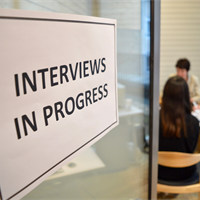
Applications and interviews for students with disabilities
February 13 2018
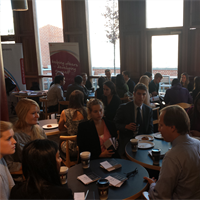
Law and legal services Information for LLM students

Law and legal services Providers of postgraduate courses in law

Law and legal services In-house law

See more articles
Please ensure all the details have been entered correctly in the twitter control..
TCLA - The Corporate Law Academy
Mock interview.
The perfect preparation for your next vacation scheme or training contract interview.
We design our Mock Interviews to convert your law firm interview into an offer
The goal of our Mock Interview service is to convert your vacation scheme or training contract interview into an offer.
Our Mock Interview service is completely bespoke to the law firm you are interviewing with. We use our data and experience to provide you with a practise interview that will help you to simulate your real interview as closely as possible.
Knowledge is a small aspect of what is needed to excel at interview. Your ability to respond to challenging questions, demonstrate your commercial awareness, and present yourself under pressure is what distinguishes one candidate from another. We will show you how to do this.
We believe anyone can be trained to perform exceptionally well at interview. You can trust us to prepare you for the real thing.
In the 2023/24 cycle, 92% of candidates have rated our mock interview service a 10/10.
What our interviewees have said...
This is one of the most useful sessions i’ve ever attended. it was great to see how we, the participants, would initially answer and then get the more ‘refined’ feedback and sample answers. this was extremely helpful and really helped me be able to understand what to think about. I would attend this session weekly if it was offered. thank you for continuing to provide such excellent services. HB
Not only was this packed with FANTASTIC information but it was also delivered by those who have walked the path. I am very inspired! Thank you! MA
Shahana was super helpful! The specific feedback was really useful and I am very glad she nitpicks because it allows me to go into my AC with a very strong understanding of how to deliver a good performance. SA
I have just received a training contract offer from [redacted] (my dream firm) and I just wanted to write to you to say a big THANK YOU for creating this platform and being so supportive. Before this cycle, I was very lost with my applications and did not really know what I was doing wrong. In retrospect, I didn’t know that much about what makes a good application and commercial awareness seemed like a scary and unattainable concept. Throughout this year, I did your courses, read discussions, aside questions, wrote applications, started reading FT news and suddenly it all started fitting together and I was even praised for my commercial awareness… This platform gave me the confidence that I can do this (even through I probably did not believe it until it actually happened) and the power to push through the months of applications and interviews. I wanted to let you know how much I appreciate what you are doing. I appreciate what you are doing. I realise that this is not just the work of one person and the strength of TCLA lies in the community of incredibly supportive and ambitious people. AC
I have learned so much and feel more confident not only with interviews/AC but also commercially focused questions on applications. GH
Mahesh has been absolutely fantastic. I have been having weekly interviews with him in preparation for Winter Vacation Schemes and Training Contract interviews. He has been incredibly invested in my process, is extremely friendly and approachable and more importantly went above and beyond to help me secure my training contract. Thank you very much Mahesh! AG
[Redacted] offered me a training contract on Friday!!! Going from CCD with no mitigating circumstances to receiving 4 vacation scheme offers and now a training contract offer is a story that I definitely want heard. This is especially the case because I ALWAYS hear stories about people who doubt whether they can make it in this field because their A-Level grades aren’t great and/or they went to a non-Russell group uni, so I am definitely happy for it to be posted in hopes of inspiring those people. The fact that I am going to be a trainee in 4 months as well makes this even crazier! As you know, my journey has been a rollercoaster, so I can’t even put my excitement into words right now. I just wanted to say a HUGE thank you because this would not have been possible without all of your help! AP
One of the best interactive sessions I have attended by far. Closely simulates a real assessment environment with regards to the structure, the content and the questions asked. Even though I found it challenging, I learnt a lot and it gave me confidence to face and prepare for my real upcoming assessments. This is a perfect way to prepare for interviews and case studies going forward and the membership is worth every penny! Jaysen and Alice provide the perfect balance between them while both providing informative information and personal advice to takeaway from the session. One piece of constructive feedback is that I wish the sessions were either longer or slightly smaller groups as I didn’t want it to end. BG
Loved how intimate the sessions were and how interactive it was. I thought we’d mainly be listening and taking notes but it was the opposite which meant I gained way more out of the session than expected! It was by far the most useful workshop I’ve ever attended (online and offline). I can’t fault it at all. The only thing I would say is that I wish it ran on longer, only because I was really enjoying it and wanted it to continue. Also, please keep doing more of these!! EA
Just wanted to reach out and personally thank you for the invaluable work you do running and coordinating TCLA. After a string of unsuccessful apps last year, I put my head down this summer and started working more systematically towards achieving a vac scheme offer (a methodological approach really is the key here isn’t it). TCLA has been absolutely central in that process and I’m now so pleased to say I’ve been offered a place on a VS at a silver circle firm this summer. I know you probably hear from people about this all the time, but it feels important to tell you the time and energy you have spent on your business has definitely contributed to changing my trajectory in such a hugely positive way. There’s no small way of properly saying thank you so much for that. ES
I still can’t believe that I’m typing this, but I’m so happy to have accepted a training contract at an international firm that feels so right for me! …Whilst I worked incredibly hard to get here – spending time self-reflecting on my skills and increasing my commercial awareness, it wouldn’t have been possible at all without this community. You guys made me feel so much less alone in this process, and the support you provide to others is invaluable. I’m heavily indebted to TCLA. Jaysen, thank you from the bottom of my heart for creating this platform, and thank you to all the heart for creating this platform, and thank you to all the amazing people who contribute and make it what it is. Without you guys I wouldn’t be here. ET
Just wanted to thank you for creating TCLA – it’s been an incredible help throughout the law application process. A year and a half ago, I knew nothing about a legal career and felt incredibly daunted even going into a City law firm. Numerous rejections later and I’ve now secured two vacation schemes – still not sure how I’ve done it, but without all of the invaluable resources provided by TCLA I wouldn’t have stood a chance! Just wanted to tell you to keep on doing what you’re doing and changing lives! GL
The interview prep provided was very useful and tailored to my situation. The process of helping me improve on my answers and picking holes in my examples definitely helped me secure a TC. Hands down the best interview prep I have received and will definitely be referring people to do the same! GM
I am incredibly proud of, and inspired by what you are building with TCLA. I have periodic calls with students applying for vacation schemes and training contracts and TCLA constantly comes up as a community and platform that has become a lifeline for so many students in the challenging journey towards the career of their dreams. …I know you have only just begun and there’s so much greatness ahead for you and fr TCLA. I am excited for you. Well done Jaysen and thank you for all that you do to make a difference! GP
I cried for hours earlier tonight because I cannot believe what had happened. Today, I got offered a training contract from [redacted]. I’m still trying to process it all – I’ve been overwhelmed with emotions! When I started this journey in search of a training contract, I had no clue what I was doing. And that was very clear. I never got past the application stage and I could never tell what I was doing wrong, especially as no feedback was given. It was only with your help this cycle that I started to see results…Your mock interviews truly prepared me for [my interviews]. On top of this, I thank you for creating the TCLA community. The people there are incredibly nice and always willing to help and give advice. I don’t think I would have ever made it without your help. This all feels very surreal and I cannot believe that I have done it. I cannot thank you enough for how much you have helped me through this rollercoaster of a journey. GR
Just wanted to say thank you for everything! Last year, at this time, all I had was the resources available on TCLA. I didn’t feel confident in myself but stuck to the advice. I reached out to others to network, used the vac interview prep resources and started to follow commercial news more rigorously. Literally, this time last year! Now I have a training contract offer and I’m getting to start the career I’ve always wanted but never believed I was capable of. Thank you for everything! HE
I just wanted to tell you that I have just been called by [redacted] and they offered me a training contract directly, without needing to go through their vacation scheme!! I wanted to thank you for your help, the mock interview really made me feel so much more confident and definitely contributed to my success during the interview! …You are truly an amazing person and everybody can see your passion for helping other students get into their dream firm! Thank you again! HF
Thanks for your help with the practice interview, and to let you know that I got the [redacted] training contract! I’m really, really pleased (and relieved!), after so many rejections and years of applying it feels great and I’m so happy I pushed through and persevered. Honestly, I couldn’t care less about rejections now! KL
I have recently received a training contract offer from [redacted] and will be accepting the offer. …TCLA has undoubtedly been instrumental in allowing me to unlock my true potential and iron out deficiencies in my all-round approach to the training contract process that had been holding me back for years. I could not be happier with the service I have received and it is the best money I have ever spent. Thank you for your relentless efforts to continuously provide such a first-class service that really does have the capability to change lives. KM
I got a vacation scheme offer from [redacted]!!! Honestly I cannot thank you enough for all the help you and the TCLA team have given me. The confidence I got from the practice interview really helped with my actual interviews and the areas that I improved from your feedback were ones that the interviewer seemed really impressed with. TCLA has helped a ridiculous amount with my commercial awareness. I never felt confident answering commercial awareness questions until I found your page and it is the reason I failed at so many interviews in the past. As you know I literally gave up on the hope of getting any offers this year. I genuinely could not have done this without your help and cannot express how grateful I am to you. Keep doing what you are doing! LW
You probably don’t remember but in March this year we had a mock interview for my vacation scheme interview with [redacted]. Fast forward to last week (and I cannot believe I am typing this), I received a training contract offer!!! As an international student from a non-RG university, this seemed like a very unrealistic dream a couple of years ago. I wanted to thank you and say how grateful I am for all of the help I have received from the TCLA community. I would not have been here if it wasn’t for all the advice, guides and seminars you have put together. Not to mention the helpful threads on the forum. You have truly changed my life! OP
I am absolutely buzzing to let you know I’ve been offered a training contract offer with [redacted] (and an assessment centre still pending with [redacted] in February)! Thank you for believing in me! I cannot wait to see where TCLA will go in the coming years and I hope to contribute as much as possible to the platform… PN
I cannot believe I get to write this but I got a training contract at [redacted]. I really couldn’t have done any of this without you and the TCLA community. You really helped me identify where I needed to focus on and how to approach all the different stages with confidence. On several occasions, you went above and beyond a subscription service and I am SO thankful for that and all the time you have dedicated to helping me. I literally went from nothing to 4 vacation scheme offers, then to a training contract and having to turn down interviews. That is literally insane! I just feel really grateful to you and the TCLA community. PR
The zoom session has thankfully restored my confidence in my ability to perform in case study exercises! I usually dread case studies exercises during assessment centres, but the session has showed me that you will go far from articulating your thought processes clearly. Thank you very much! Would highly recommend this to anyone with upcoming AC’s! RS
How Mock Interviews work
Our Mock Interviews take place over Zoom and are run by TCLA instructors with a track record of success from interviews at the world’s most demanding commercial law firm.
They will tailor your Mock Interview to the firm you are applying to and the specific interview you can expect to have.
You will select the type of interview you would like to have, including a case study interview, where your case study materials have been designed to prepare you for a real case study. You can also book a standard motivational interview, a commercial interview, a telephone interview, and a video interview.
Our Mock Interviews are designed to be challenging. We may pick up on the points you mention, highlight any discrepancies in your application and press you on commercial issues. Our approach will help you to answer challenging questions so you’re well-prepared during the real thing. However if you’re new to the process, be assured that we will listen, encourage and support you, and tailor the difficulty to your experience and current capabilities.
You will receive direct feedback on your performance throughout the interview. At the end, we will also provide you with a summary and clear next steps for you to work on. If appropriate, we will help you to reformulate your answers to make them even stronger.
Choose your mock interviewer and you can select your preferred slot 🙌🏽
Go Premium for 50% off
Gold members are entitled to 50% off a mock interview. Simply book using the link in the members area !
Meet the Mock Interviewers
Aks Khurana, Vera Mekhonoshina & Shahana Yusuf!
⭐️ Aks is a future trainee solicitor at Latham & Watkins. He has secured seven assessment centres, three vacation schemes, and training contracts offers from two US law firms. Aks has also worked in-house at fintech startups in Asia and the Middle East and led a cleantech project developing hyperloop pods.
⭐️ Vera is a postgraduate student at LSE and previously studied History at UCL. Prior to joining TCLA, Vera spent 1.5+ years at an educational consultancy and helped grow an international tech startup in the UK as the first London-based hire.
⭐️ Shahana gained her BSc in Economics at University College London (UCL) and enjoys applying her financial knowledge and experience to the world of corporate law. Shahana has conducted 50+ mock interviews whilst at TCLA, with her candidates going onto receive offers and further invitations from firms including HSF, DLA Piper, Jones Day and more!
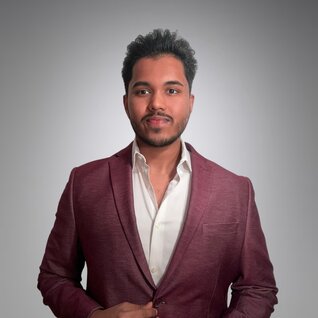
Please follow the instructions on the booking form on this page, next to the “Book a Mock Interview” section. Once you select the type of interview you would like, you will be able to see the availability of our mock interviewers and upload additional information. Kindly note that members must book through the website rather than via email, even if it is a repeat appointment. This ensures we can record and manage the mock interview service.
TCLA’s Mock Interview service is run by Aks, Shahana and Vera.
You will receive direct feedback on your performance throughout the interview, including your ability to justify your motivations, differentiate yourself as a candidate, and present yourself. At the end, we will also provide you with a summary and clear next steps for you to work on.
TCLA’s Mock Interview Service takes place via Zoom . You will receive your Zoom link in your confirmation email after booking. Please check your spam folder if you cannot find this and email [email protected] if you run into any issues.
Mock Interviews are £70 to non-members, and £35 to TCLA Premium Gold members (50% off).
You can reschedule your Mock Interview through the confirmation email you receive if there is more than 48 hours notice before your session is due to begin. If we do not have 48 hours notice, you will not be able to reschedule the Mock Interview and must pay the full price if you are unable to attend.
You can cancel or request an amendment to your booking up to 12 hours beforehand and we will issue a full refund. However, because of the commitment we require from our TCLA Mock Interviewers and the related cost, if you wish to cancel within 12 hours, or you do not attend for any reason, you will not be eligible for a refund.
Your case study or article will be emailed to you 30 minutes before your scheduled mock interview. Please keep an eye on your spam folder. If you have not received it 30 minutes before your mock interview, please contact your interviewer.
If you have any questions about the mock interview service, please contact [email protected] . If you have booked a mock interview already, please email the mock interviewer you have booked with.
We will also ask you for information about your needs and give you the chance to upload any relevant documentation.
After you have completed your booking, we will send you a confirmation email containing a Zoom link.
This usually means we have reached maximum capacity, but please drop us an email to [email protected] and we will do our best to fit you in 🙂
- support@tcla.zendesk.com
- +44 (0) 753 854 5095
- Privacy Policy
- Terms and Conditions
- TCLA Newsletter
Follow us on social
© 2024 The Corporate Law Academy. All Rights Reserved.
Website by 438
Privacy Overview

Commercial Law Academy
Secure a training contract.
Join the most comprehensive e-learning platform for aspiring commercial lawyers
Why have 10,000+ aspiring lawyers chosen us?
In short: to access the best expert-led advice, all in one place. Our courses have been crafted and curated by ex-Magic Circle lawyer and best-selling author Jake Schogger, based on his experiences working as a lawyer and coaching, mentoring and training thousands of aspiring lawyers. He’s teamed up with senior City lawyers and ex-partners, leading City trainers, and an ex-Magic Circle graduate recruiter to offer the insights and guidance you need to secure a training contract.
Unparalleled variety, with 22 expert-led courses, 300+ video lessons, interactive quizzes, practical tips, insider insights, and exclusive guidance.
90+ comprehensive firm profiles with USPs for Magic Circle, Silver Circle, US, regional and Scottish firms, plus in-house teams.
120+ comprehensive assessment centre insights for City firms, with specific advice from successful candidates.
Hundreds of recent successful applications, plus Jake's commentary on why examples are strong and what could potentially be improved.
14 example commercial and legal interview case studies based on real law firm interviews, with detailed model answers and guidance.
Monthly sessions where Jake reviews applications, plus a forum where he answers subscribers' questions.
Certificate of completion for every course.
Our core areas of learning
22 comprehensive courses designed by genuine experts to properly prepare you for applications, online tests, interviews, internships, and the world of commercial law

The recruitment process

Commercial awareness

Professional skills
See all courses
Animated videos
for a more engaging learning experience

Hear what others have to say...

Rebecca Pauley
BA History, UCL and MSc Gender, LSE.

Sophia Birch
LLB, University of Nottingham

Elaine Dunn
Trainee Solicitor, DLA Piper

Demi, Law graduate
Feedback on her Commercial Law Academy membership

Final year History student
Feedback on the training contract module

Kristy, Australian Law graduate
Feedback on the M&A content

Final year PPE student
Feedback on the commercial awareness content

University employability adviser
Feedback on the employability content

Final year Politics & International Relations student
Feedback on the assessment centre, growth mindset and employability content

Masters student
Feedback on the assessment centre and commercial awareness content
Success stories


IMAGES
VIDEO
COMMENTS
897. 2,390. Jan 18, 2021. #1. Hi all, please see below the third of my Monday Article Series! This week is my definitive guide to case studies. It's a long one - you might want to go get a coffee and settle in! Introduction. This week's Monday Article will cover how to approach law firm case studies, one of the most intimidating parts of the ...
Many commercial law firms require candidates to undertake a case study at the final interview stage. There is not one single format, so it is advisable to ask the recruitment team what you can expect. Below are some general points and tips which have been put together from feedback from students who have gone through the process and what we ...
A legal case study interview is an exercise which allows the firm to assess your potential skills as a lawyer. The case study format enables the firm to identify core skills areas that enable you to deal with clients, documentation, giving advice and making judgements.
Interview case studies. This course talks you through 14 case studies based on actual commercial law interviews, including questions, answers and advice covering the role of law firms, pitching, written exercises, contract and legislation analysis, disputes, M&A, and more. Get started.
What Are Law Firms' Scenario-Based Interviews? Do not confuse a "scenario-based" interview with a traditional case study/presentation exercise. This is a wholly distinct kind of assessment. A scenario-based interview can take two forms:
4. Describe your approach in the courtroom. How you perform in the courtroom can be the determining factor in winning your case. Answering this question is your chance to share how you interact with members of the court, present your case and represent your client. Give a detailed, step-by-step answer that shows exactly how you prepare and work ...
14 example commercial and legal interview case studies based on real law firm interviews, with detailed model answers and guidance. Monthly sessions where Jake reviews applications live on air, plus a private forum where Jake answers questions on a day-to-day basis. Certificate of completion for every course.
You may encounter challenging questions during your law firm interview. Stay calm and composed, and use these strategies to efficiently handle difficult questions. 6.1 Take your time. If you need a moment to think about your answer, pausing briefly is okay.
7) Take your time and be clear in your answers. Use your interview to show your clarity of mind and strong communication skills. Instead of rushing to answer questions take a brief moment to gather and organise your thoughts. When faced with a tough question it is better to explain to your interviewer that you need to take slightly longer to ...
For a successful law interview, lawyers may benefit from tips on how to best make the case for themselves - why they'd be right for this firm. Particularly, since the way they approach meetings in their practice of law can backfire in an interview. A job interview isn't a deposition, after all.
Penningtons Manches is a UK law firm who specialise in "dispute resolution, corporate and commercial, real estate, private client and family". Two trainee solicitors talk us through a typical day as part of their training contracts. Read first-year-trainee Eva's account here: First Year Penningtons Trainee Diary.
6. Give an example of a time you used your ability to negotiate. In a law interview demonstrating your knowledge of the firm is all well and good, but you also need to show that you're qualified for the job. This is where strength and competency-based questions come in. These questions require you to give relevant examples of a time that you ...
14 example commercial and legal interview case studies based on real law firm interviews, with detailed model answers and guidance. Monthly sessions where Jake reviews applications live on air, plus a private forum where Jake answers questions on a day-to-day basis. Certificate of completion for every course.
I'll also cover many of the aspects of mergers and acquisitions that you need to know for law firm interviews and case study exercises. Let's begin with an example, which highlights the impact of mergers and acquisitions. In 2017, Amazon bought Whole Foods and became the fifth largest grocer in the US by market share.
Screening Interviews: Quick screening interviews can give an employer a better sense of your skills, experiences, and interest. A typical meeting lasts between 20 and 30 minutes, perhaps near campus, at an employer's office, or by phone. Callback Interviews: These are the "main event! During callback interviews, candidates are typically interviewed by multiple law firm attorneys.
Mergers and acquisitions forms the basis for some of the hardest exercises at law firm interviews and assessment days. That's why this course is designed to prepare you for all forms of M&A questions across case studies, written exercises and scenario interviews. You'll come away with a detailed understanding of the key interview topics through ...
14 example commercial and legal interview case studies based on real law firm interviews, with detailed model answers and guidance. Monthly sessions where Jake reviews applications live on air, plus a private forum where Jake answers questions on a day-to-day basis. Certificate of completion for every course.
Competency Interview Questions Plan Use this fillable PDF to prepare for the different types of competency questions at law firm interviews and assessment centres. Written Case Study 1 - Legal Analysis . Based on a real written exercise, this mock case study will help you prepare for your law firm assessment centres.
The firm will pick a case study relevant to the work they do. You are provided with a large amount of factual information. The most common written exercise is writing a letter to a client on whether or not to proceed with a business proposal, once you have read the relevant documents. You may be asked to present advice to the client (usually ...
They will tailor your Mock Interview to the firm you are applying to and the specific interview you can expect to have. You will select the type of interview you would like to have, including a case study interview, where your case study materials have been designed to prepare you for a real case study. You can also book a standard motivational ...
14 example commercial and legal interview case studies based on real law firm interviews, with detailed model answers and guidance. Monthly sessions where Jake reviews applications live on air, plus a private forum where Jake answers questions on a day-to-day basis. Certificate of completion for every course.
Our case studies are based on actual commercial law interview materials, and include questions, model answers and detailed advice covering: the role of law firms, pitching a firm to a client, written exercises, contract and legislation analysis, scenario-based questions, dispute resolution, M&A, and more.